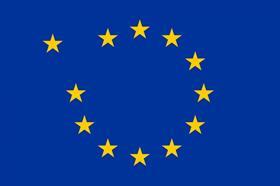
Glancing at the front pages of many UK papers this morning, you could be forgiven for believing that an opening in the Brexit impasse had finally been identified, that prime minister Theresa May had somehow resurrected her deal, rejected earlier this month in the biggest ever parliamentary defeat suffered by a UK government.
“Theresa’s Triumph,” declared the Daily Mail after MPs voted for an “alternative” to the unpopular backstop arrangement that would see the UK remain in the customs union and Northern Ireland remain in the single market indefinitely in order to prevent a hard border on the island of Ireland. “She Did It!” yelled the Daily Express. “Now it’s up to EU.”
But no details of what this “alternative” might be were provided. The Irish Times described the move as “deeply worrying”, suggesting that a no-deal Brexit was moving ever closer.
France’s Le Monde concluded that Theresa May risked a major confrontation with the EU and warned of the sense of “frustration and weariness” in Brussels.
May now heads back to Brussels to renegotiate the backstop, despite EU negotiators having clearly rejected the inclusion of a time limit to the arrangement or a unilateral exit clause.
Given such hints from the EU, whatever the prime minister brings back to the House of Commons in mid-February is highly unlikely to command a parliamentary majority.
Under leader Jeremy Corbyn, the opposition Labour Party’s demands that May rule out the worst-case scenario of no-deal and agree to a customs union with the EU have both been rejected.
In the meantime, no-deal, accepted by most MPs to be a “nightmare” scenario, edges closer.
Germany’s Die Welt admitted that Brussels was now also under pressure and risked being jointly responsible for the “political failure” of a no-deal Brexit.
The fact is, of course, that EU countries stand to lose far less from a no-deal scenario than the UK, whose supply chains could face major disruptions as a result of crashing out after 29 March.
Exporters to the UK market from all over Europe – France, Belgium, the Netherlands and Greece – as well as from non-EU countries in the Middle East and Africa, have understandably adopted the same wait-and-see policy over Brexit.
“It will depend on whether or not there is a deal, and if this includes single market/customs union, etc,” one responded. “Each scenario would have very different implications.”
Even those exporters that are highly reliant on the UK market are paralysed by the unpredictability of the situation.
“We are very dependent on this market,” said Christina Manossis of Greek kiwifruit and grape exporter Zeus Kiwi, “but there is so much uncertainty regarding Brexit that it is impossible to make firm plans at the moment.”
This year, the company is set to receive AEO (Authorised Economic Operator) status, which is designed to speed up customs procedures for those companies meeting certain internationally recognised standards on supply chain management and customs procedures.
The Port of Antwerp counts the UK as its second largest maritime trading partner and is preparing to go on a UK roadshow in February to inform local shippers and forwarders about its post-Brexit solutions.
“Each year, over 16m tonnes of cargo are handled between the Port of Antwerp and the UK,” a spokesperson stated. “After Brexit, it is our intention to continue to be a preferred European gateway and distribution hub.”
Naturally, those exporters to the UK from outside the EU are more relaxed about the possibility of a no-deal Brexit.
“In my opinion, if there is a no-deal Brexit in the end, then in terms of business and trading conditions, Turkey will be in a much more advantageous position,” said Sertaç Kirmizidam from Adana-based exporter Kirmizidam. “We are outside of the EU and yet we have close political and economic links with the UK. I believe this would be positive for Turkish exporters to the market.”
Given the continued uncertainty and the improbability of any EU movement on the backstop arrangement, an extension of Article 50, to provide time for further negotiation, a general election or a second referendum, appears increasingly likely.



